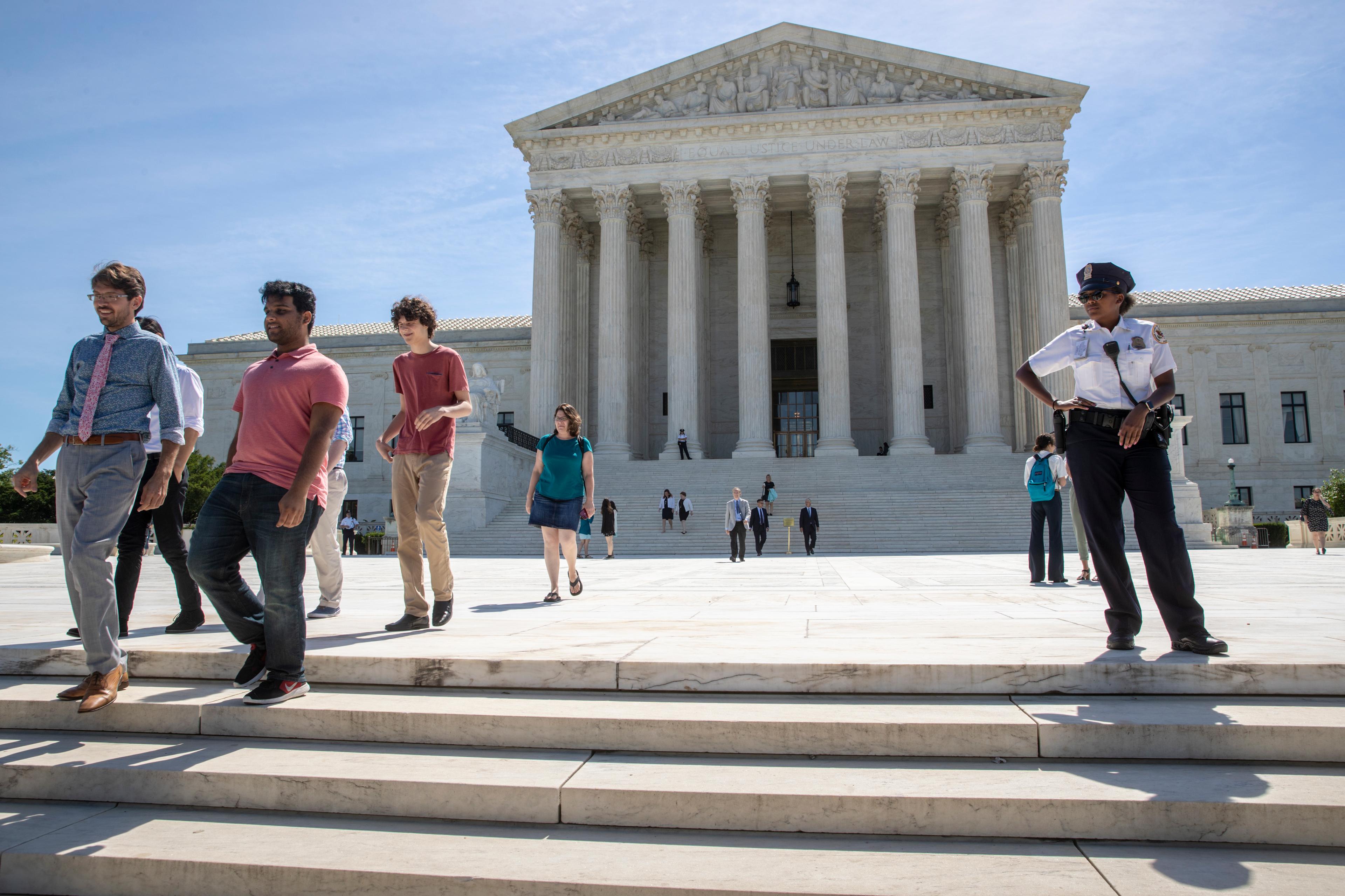

Colorado Democrats, including Gov. Jared Polis, celebrated the U.S. Supreme Court's decision Thursday to place on hold Trump administration plans to include a citizenship question on the 2020 census, saying it will help ensure a population count that delivers the fast-growing state its fair share of federal funding over the next decade.
Polis, lawmakers and immigrant advocates lauded the split court decision at a state Capitol news conference. They'd long warned that adding a citizenship question would deter thousands of Colorado residents, including households with noncitizens and Hispanics, from participating.
Polis had previously described the administration's plan as a political tool. Immigrant advocates said the plan, coupled with recent warnings of federal law enforcement sweeps targeting residents with deportation orders, intimidated immigrant communities.
"Today’s Supreme Court decision was an important step in the right direction of an accurate count. People can fight all day about who should be here, who shouldn’t, what their status is and where they should be. But the Census is simply about data," Polis said.
The Democrat-led Legislature this year allocated $6 million to an effort to encourage census participation among hard-to-reach communities, including minorities, the elderly, children and the Southern Ute and Ute Mountain Ute tribes.
“When we count everyone, that means more funding for roads — we know in Colorado that we need that funding for roads,” state Sen. Faith Winter said at the conference. “We need funding for schools, we need funding for human services.
She said that having an undercount for the census was unacceptable and that’s why Colorado joined the lawsuit.
Proponents argue it also will benefit rural areas that lack internet service, noting the census will largely be conducted online.
Most Republicans opposed the effort, but GOP state Sen. Kevin Priola of Adams County co-sponsored the legislation.
Federal funds account for a third of Colorado's roughly $30 billion annual state budget. Arguing for the outreach program, Democratic state Reps. Yadira Caraveo and Kerry Tipper warned that a 1 percent undercount could cost the state $630 million over the next decade, and a 1.5 percent undercount could jeopardize expectations for an 8th Congressional District.
Colorado's population has risen from 5 million to 5.7 million since 2010, according to the American Community Survey, which is conducted annually by the Census Bureau.
Polis lamented a separate Supreme Court ruling Thursday that federal courts aren't the place to dispute the partisan drawing of electoral districts, or gerrymandering. He did note that Colorado voters last year approved a pair of constitutional amendments designed to eliminate partisan congressional and state legislative mapmaking.
"We hope that other states follow the lead of Colorado in trying to remove politics and partisanship" from redistricting, Polis said.







